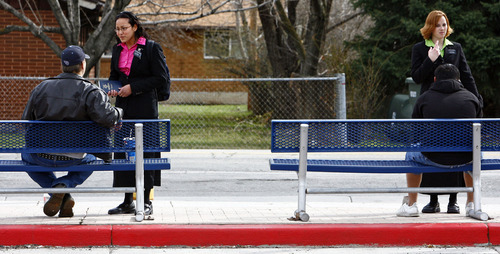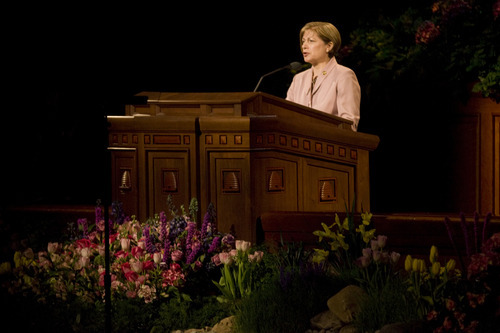This is an archived article that was published on sltrib.com in 2012, and information in the article may be outdated. It is provided only for personal research purposes and may not be reprinted.
I try to say as little as possible in church. It's not my venue. Mostly I sit in the back and keep to myself. Nothing good can come from me saying stuff the entire congregation can hear.
The problem is that my spirituality is of the rambling sort. As such, I don't correlate well. And church (pick one) is big on correlation. If you don't think so, start making noises churches don't like and see what happens.
It's my brain. It tries to think both sides of an issue at the same time. It's a noisy process that generates a lot of internal discussion about the nature of God and the cosmos and the meaning of life.
This is not a form of spirituality that works for everyone. I prefer it because it keeps my interest up, which is more than I can say for Sunday school.
This is not something that can or should be expressed to the conventional on their own turf. I didn't always know that.
I learned it but good during a priesthood meeting years ago. The lesson that Sunday was on the nature of God, or Heavenly Father. The instructor was young and enjoying himself. It began with a rhetorical question.
Him: "Brother Kirby, why do you believe in Heavenly Father?"
Me: "Who says I do?"
Hmm. Ever notice how sometimes it'll suddenly get so quiet in a room that you can hear people blink? This was one of those times.
I'd been to church enough to know I was in trouble. I tried to let it go at that, but the instructor wanted to press the matter.
Him: "Well, do you believe in Heavenly Father?"
Me: "Right this minute?"
There was this growing suspicion in the classroom. It hadn't developed into a spiritual lynching yet, but something obviously had to be done about me.
Him: "OK, when did you lose your testimony of Heavenly Father?"
Me: "Couple minutes ago."
It was actually right around the time the lesson began. I've always had a hard time getting my head around a God that comes with a manual.
Trying to bail myself out, I explained that I wasn't too worried about my loss of faith. It would probably come back after church. It always had before, even when I didn't want it to.
"It'll be OK," I assured everyone. "Go ahead with the lesson. I'll just sit here quietly and think about evolution."
Yeah, that made things better.
It worked for me. While evolution is generally regarded by the deeply religious as the primary province of scientists/atheists, I've always taken great spiritual comfort in it.
I love the echoes of time found in rocks and museums. There's something soothing about the evidence of a billion years of life at work.
There's cosmic beauty in the millennial march of creatures that keep their place in a rising order. They lived and died, taking only what they needed and surrendering everything to those yet to come.
Then — zap! — along came human beings, creatures who eat more than they need, waste more than they should and exploit virtually everything.
Right out of seeming nowhere comes an animal capable of thinking it knows more than it really does. It simultaneously creates great works of art and soulless slums. It eradicates disease, then murders the survivors in genocidal rampages. It invents church.
Pretty cool, huh? Something that idiotic just isn't natural. It had to have happened on purpose.
Robert Kirby can be reached at rkirby@sltrib.com or facebook.com/stillnotpatbagley.





